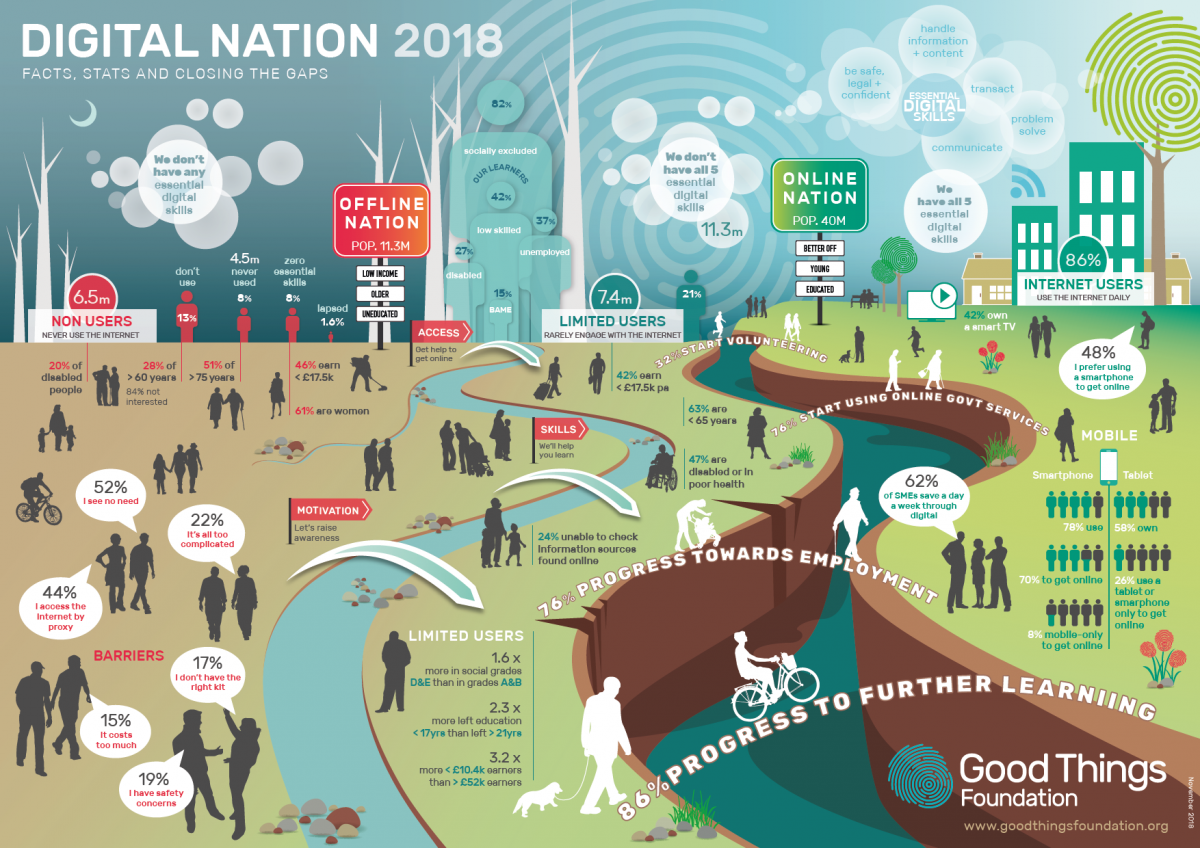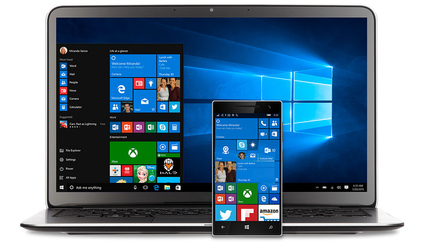Digital Inclusion & User Centred Digital Service Design
Philippa Leary, Superhighways Digital Inclusion Lead and trainer looks into why the Charity Digital Code of Practice is so right to highlight:
The needs of beneficiaries and other stakeholders’ should be the starting point for everything charities do digitally.
The small charity digital wish list
A quick question to start the ball rolling....
“Wouldn’t it be nice, in an ideal world, if everyone who used your services would complete your carefully worded digital survey so you could:
-
Benchmark
-
Capture a user journey
-
Measure progress
-
Demonstrate how your services have had an impact on an aspect of their lives?"
Answer...
“Yes it would!”
That was easy wasn't it?!
It would be nice for those of us working for small over-stretched charities, but more importantly it would be a huge benefit to our beneficiaries. Because having those skills can transform lives. They can rebuild people's confidence and sense of self-worth; create opportunities for employment and friendship; improve health, wellbeing and a reconnection with life - both on and offline.
Please tick yes, no or maybe
Did you know that the UK is a country where 6.5 million people are non-users of the internet – that means people who have never been online and never intend to go online? Then there are 7.4 million ‘limited users’ who rarely engage with the internet?
In my view any efficiencies small charities make embracing a more digital, smarter way of working, let alone those looking to innovate service design through digital, will be undermined if we do not put our beneficiaries at the heart of the matter. Let’s face up to the fact that the offline community of 11.3 million people who are also often on low incomes, generally older and / or have a disability, are significantly representative of the very communities that we support.
Being digitally excluded, as well as socially marginalised, is a double whammy for anyone
Meet Janet, a learner who signed up to one to one training through a small pot of funding from Clarion Housing’s Digital Grants. Because the grant offered flexibility in our delivery methods, we could in turn be flexible in how we delivered our support to better health, using online services. I am very proud of all Janet achieved in a short time.
The issue?
“I feel very isolated by my condition – I find it difficult to communicate with people - to be relaxed and open. I really could not have coped with group training. I need to feel relaxed to learn. And in our training sessions I did not have any problems because I could focus and was not wound up with worry about having to concentrate.”
The prescription?
A patchwork of one to one digital support sessions responsive to her needs, not a curriculum prepared to equip the modern workforce.
“So in the five sessions so far, you helped me get back into my Gmail account; search price comparison sites; apply to British Gas for subsidised fuel costs because I am on a low income. And we have discussed how to set up an e-bay site, where I could try to make some money selling vintage clothes, which has always been one of my ambitions.”
The outcome?
Who knows? Like everyone else ...it's a work in progress - but here's a life changing and unforeseen outcome.
"I have just joined a new social group – it was recommended to me by a friend. It’s online and it’s all about group friendships for people with autism. I need to take a photo of myself for my profile using a camera and I hoping you can help me with this in our last session.”
Make IT relevant, make IT real
If your charity is designing a new service today, or pulling together a grant application for this year, ask yourself how you can support your beneficiaries better with their digital skills. Not only will your project run more smoothly in terms of data collection, information provision or service access, but your outcomes and the change you can effect on people’s everyday lives could be both profound and long lasting.
Also don't make any assumptions. It might be that you percieve there are barriers which aren't really there. Talk to your beneficiaires and stakeholders - find out where they are digitally and involve them when testing new ideas.
Digital skills have the power to transform people as well as charities
My further reading list in part answers some of the questions I am sure you have around "How do I put my beneficiaries and other stakeholders' needs at the starting point of everything I do digitally?”
This is a complete guide to what you need to be thinking about when your service users have either no digital skill or skills that are patchy. It’s not just a skill set for older people; sadly, many young people fall into this category too.
And as a top tip – focus on the Foundation Skills that underpin the basic digital skills framework. Does this sound like anyone you know?
The Foundation provides lobbying support at a national level to raise awareness of the basic digital skills defecit. The Foundation also provides the eLearning platform – LearnMyWay – designed specifically to teach basic digital skills which we use regularly when partnering with small charities and delivering one to one or group based digital skills learning programmes.
Use Digital Unite's resources
Digital Unite provides free step-by-step training resources plus a consultancy service to train up volunteers as digital champions to deliver informal skills training sessions.
Need some help?
Superhighways has over 10 years experience in designing and running digital inclusion and basic digital skills training programmes. We have partnered with small local charities to support their beneficiaries get online including Kingston Centre for Independent Living, Croydon BME Forum, Paragon Community Housing, Age UK Merton and Kingston Carers Network, We also run Digital Champion training to support volunteers in taking on this role. Please get in touch with us if you would like to find out more.
We are also supporting CAST to run their London Design Hops. These are free half-day creative workshops providing a first step for charities to explore the role of digital in their services. This includes how to embed a user centred approach - challenging assumptions and testing iteratively with the people who will be using your services. Find out more on the CAST website - we would highly recommend!
Stay in touch
If you would like to receive news and updates about training, tech tips, resources and opportunities for small charities and community groups in London please sign up to our mailing list.






